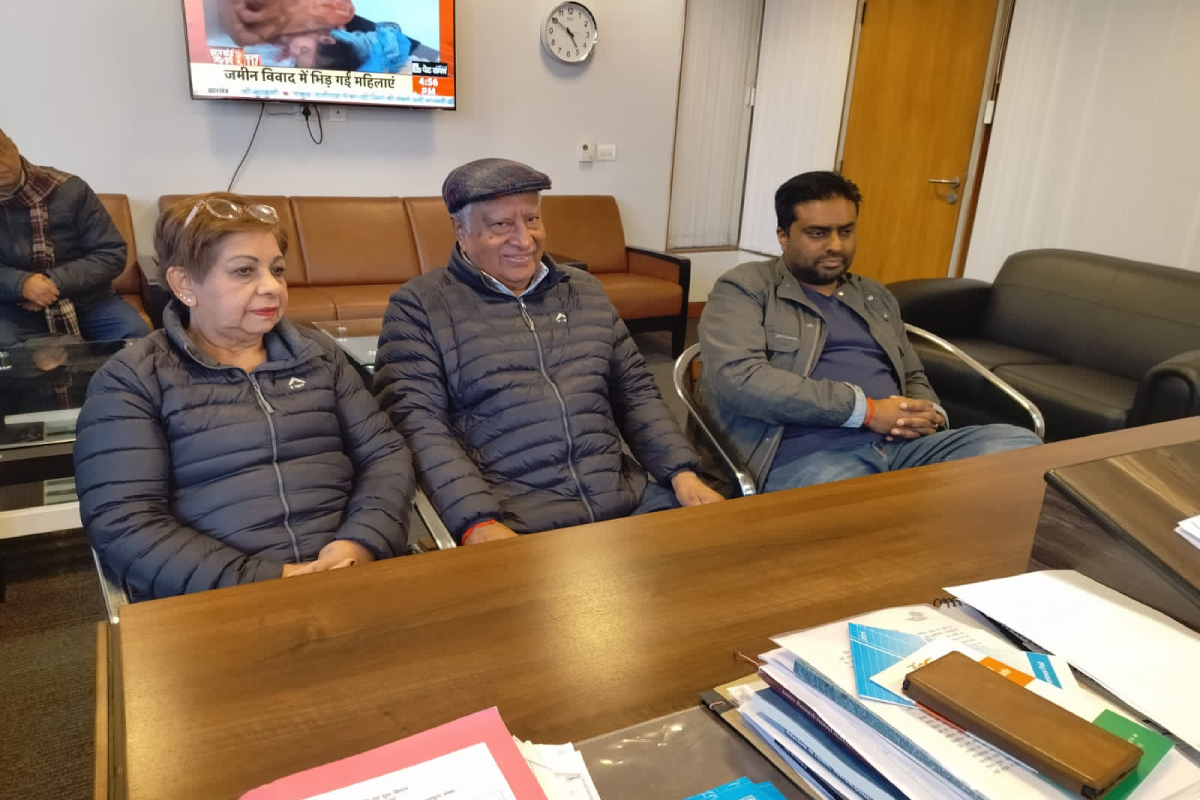An expatriate of Bihari origin supported Mahatma Gandhi in a big way during his struggle in South Africa. He came from a marginalised community of a nondescript region of the Bhojpur district in Bihar.
Budree Ahir, a native of remote Hetampur village in Jagdishpur sub division in the Bhojpur district, had gone to South Africa as an indentured labourer in 19th century. Many Indian-origin workers had agreed to become indentured labourers to escape the widespread poverty and famine in those days.
The demand for Indian-origin citizens as indentured labourers had increased drastically after the abolition of slavery in 1834. A large number of such Indians including Biharis were shipped to countries like- South Africa, Mauritius, Fiji, Surinam, British Guyana, Trinidad and Jamaica.
Advertisement
Recalling the sequence of events, Budree Ahir’s grandson Barry Budree, an academician in Durban who was in his ancestral village in Bihar along with his family, told The Statesmen that his great grandfather (dada) had to pass through a treacherous journey to reach South Africa. “Initially Dadaji was in-charge of the cattle farm in a sugarcane fields. In those days life was very tough and working schedule was seven days a week from sunrise to sunset.”
After working in various sectors like transportation of goods, coal mines and railways, he finally settled down as his own vending business.
Over a period of time, he became a wealthy man. In the meantime, he came in close contact with Mahatma Gandhi. Relationship blossomed between the two and Gandhi used to call him ‘Bhai’. His grandson said that there are several correspondences between the two – Gandhi and his Dadaji.
Recounting his great grandfather’s journey, he said, “During acute financial crisis, Dadaji had helped him (Mahatma Gandhi) by giving £1000 to him in those days. Dadaji was also jailed for three months and was not allowed to move outside the province. In 1915, Dadaji, along with Gandhi, made several trips between India and South Africa.”
“After a few months, Dadaji was struck by Spanish flue and passed away,” he added.
In his memory, there is a huge “Budree place” in Durban. His wife Poonam and son Adheesh also accompanied him during his three-day visit to his ancestral village.
The 42-year old assistant professor in Information Systems at the University of Cape Town, the great grandson of Budree Ahir, Adheesh Budree told The Statesman that he was looking forward to visit his village again for the statue unveiling ceremony. “We were aware of my great grandfather’s close relationship with Gandhiji as well as he was a freedom fighter. However, it was always something treasured in the family, and we are so happy that now everyone will come to know.”
Adheesh, who has always been drawn to the subcontinent, splits his time between lecturing in Cape Town and riding motorcycles in India. His first (2023) published book “Inheritance” explores the ever-evolving relationship between India and Indian Diaspora that now calls Africa home.
A well-known journalist and researcher Srikant has published a first-ever small booklet on Budree Ahir’s contribution to the freedom movement based on his archival source. He has given detailed accounts of the amount given to Gandhiji.
The Budree family has also met the director general of the Bihar Museum Anjani Kumar Singh regarding the compilation of a detailed documentation of the Bihari Diaspora.
Singh who is also the advisor to the Bihar chief minister told The Statesman that there is a separate gallery of Bihar Diaspora in the museum which is needed to be strengthened with proper documentation. “We are in the process of developing it properly with help and cooperation of Bihari origin citizens settled in countries like Mauritius, Fiji, Surinam, South Africa etc,” Singh said.
Singh honoured the Budree family with mementos.

Advertisement












